There’s nothing more frustrating than coming home to a wet, smelly mess on the floor.
If your Cocker spaniel is peeing in the house, you need to address the issue before it becomes a habit.
Understanding why your dog is doing this can help you correct the behaviour.
In many cases, there’s an underlying cause that can be addressed with some simple changes to your dog’s routine.
Related guides: Part of our Toileting & Marking hub. Next steps:
Cocker spaniels may urinate inside as a result of illness, excitement, fear, anxiety or simply because they need to go to the toilet and you have neglected to take them outside to do so.
Related guides: This article supports our Spaniel Home Care hub. For prevention and causes, see:
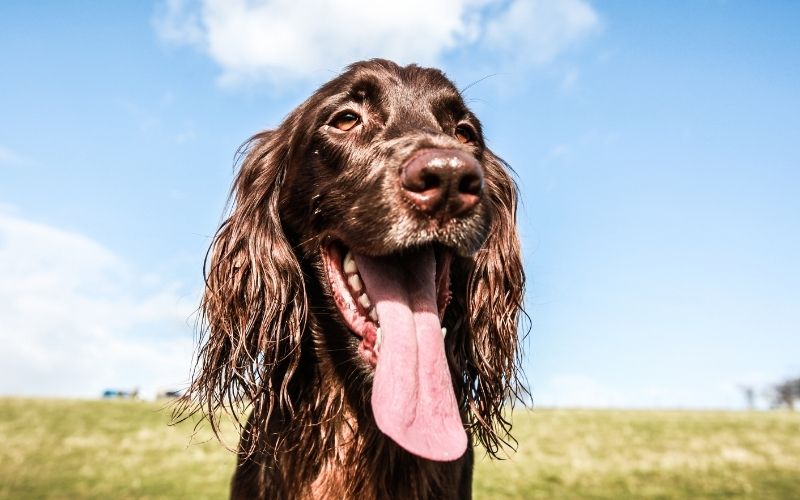
Urination due to illness
There are a number of possible reasons why your Cocker spaniel may be urinating in the house.
It could be a medical issue, such as a urinary tract infection or kidney disease.
One of the most common medical causes of house soiling in dogs is a urinary tract infection (UTI).
UTIs are more common in female dogs, but male dogs can get them, too.
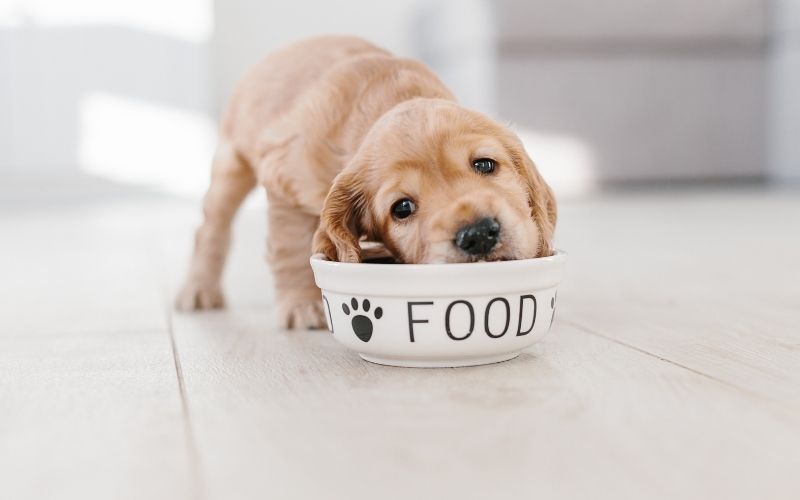
Symptoms of a UTI include increased frequency of urination, straining to urinate, and accidents in the house.
Another possible medical cause of house soiling is kidney disease.
Kidney disease is more common in older dogs, but it can affect dogs of any age.
Symptoms of kidney disease include increased urination, drinking more water than usual, and accidents in the house.
If your dog is showing any of these signs, it’s important to take him to the vet for a checkup.
Behavioural reasons
There are also a number of behavioural reasons why dogs may soil in the house.
One of the most common is separation anxiety.
Separation anxiety is a condition in which a dog becomes anxious or stressed when left alone.
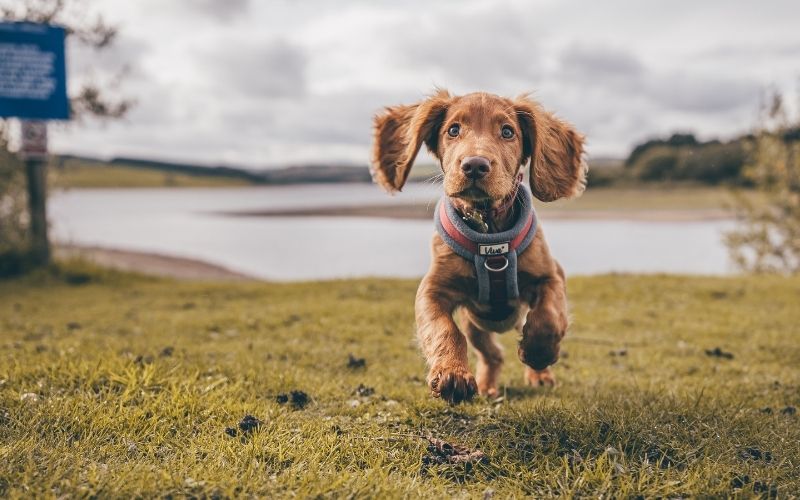
It can lead to a number of problems, including house soiling.
Another possible behavioural cause of house soiling is attention-seeking behaviour.
Some dogs may urinate in the house in order to get attention from their owners.
This is usually done out of a desire for attention or affection, but it can also be done out of fear or anxiety.
Dogs will also urinate out of excitement and the most common occasion can be when you return home and are greeted by your pet.
Cocker spaniels may also urinate in the house because they are not properly house-trained.
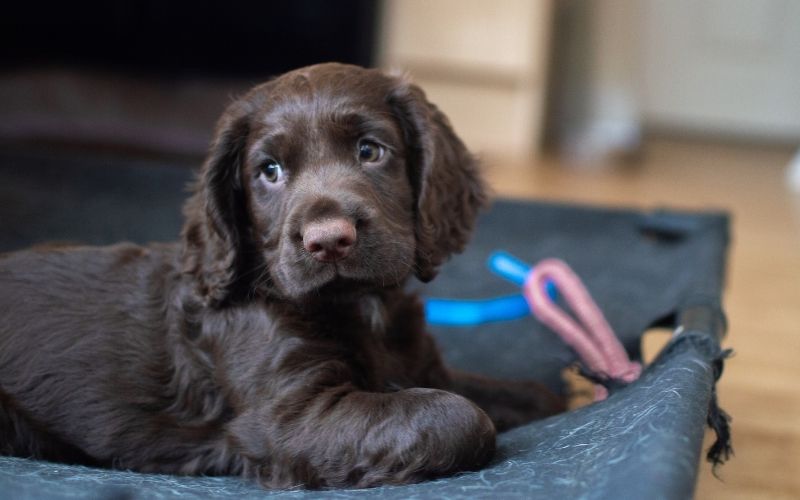
This is usually the case with puppies or dogs that have recently been adopted.
It can also be the case with older dogs that have developed bad habits.
In some cases, Cocker spaniels may urinate in the house because they are marking their territory.
This is more common in males, but females may do it as well.
Dogs will often urinate on objects that have a strong scent, such as sofas, beds, and carpets.
Marking behaviour is usually done out of excitement or anxiety.
Preventing house soiling
There are a number of things you can do to prevent your Cocker spaniel from urinating in the house.
If your dog is house-trained, make sure you take him out frequently to give him a chance to relieve himself.
It’s also important to keep an eye on your dog when he’s inside, and take him out if you see him sniffing around or circling.
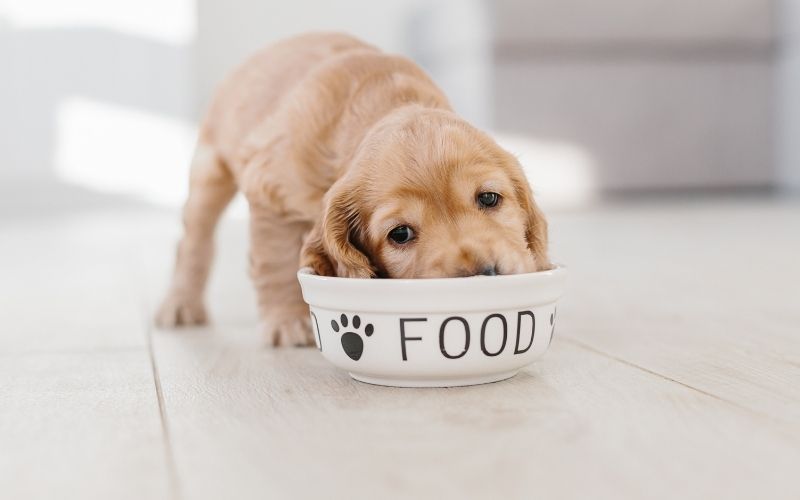
If your dog is prone to excitement urination, try to keep him calm when you come home by ignoring him for a few minutes until he settles down or simply take him outside as soon as you return so that he can use the toilet.
Never punish a Cocker spaniel, or any other dog, for accidents in the house.
Punishment will only make the problem worse and could make your dog more anxious or stressed which will lead to an increased level of indoor accidents.
If you think your Cocker spaniel is urinating in the house because of a medical problem, it’s important to take him to the vet for a checkup.
Try to identify when he urinates and why
By thinking about when your spaniel pees indoors you should be able to work out a strategy to prevent this from happening.
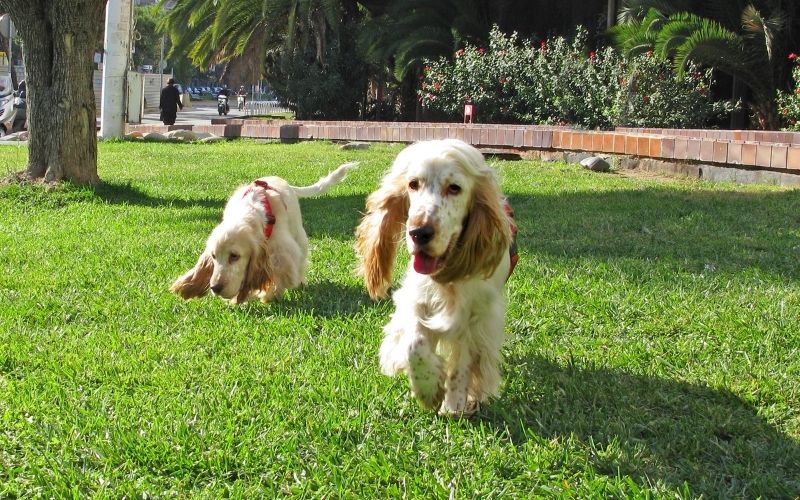
For example:
If your dog gets over excited when you come home and loses control of his bladder, then it may be a good idea to allow him outside to greet you, then, if he does have an accident it is not all over your carpets.
At the same time you can encourage him to calm down by not going overboard with your greeting.
Dogs tend to mirror human behaviour at times and, if you are super excited then your behaviour will raise his excitement levels.
Be calm yourself to help him to be calm.
House Training
It’s important to work on house training with your Cocker from an early stage.
You need to understand that a young dog will have accidents and an older dog may also struggle to control their bladder.
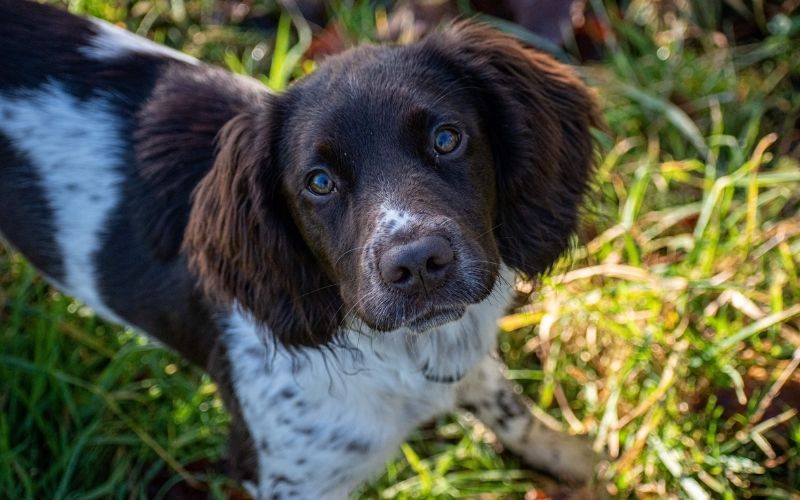
Always take your spaniel out first thing in the morning, after meals and when he has just woken up – these are the key times when he will need to go.
You will also notice times when he begins to sniff around, possibly circling a certain spot – this is a sure sign that he needs the toilet – so take him out.
If your dog does have an accident then always clean the area thoroughly to remove any traces – spaniels will pee in the same spot if they detect previous traces of scent.
Be consistent with house training, it can take some time with Cocker spaniels.
I have an article on house training which covers the subject in more detail and you can see it here.
How long can a Cocker spaniel hold it’s bladder?
This really depends on the individual dog and how much they drink.
A good rule of thumb is that a dog can hold its bladder for one hour per month of age.
So, a 3-month-old Cocker spaniel puppy can hold it for 3 hours, and an adult Cocker spaniel can go for approximately 8 hours without urinating.
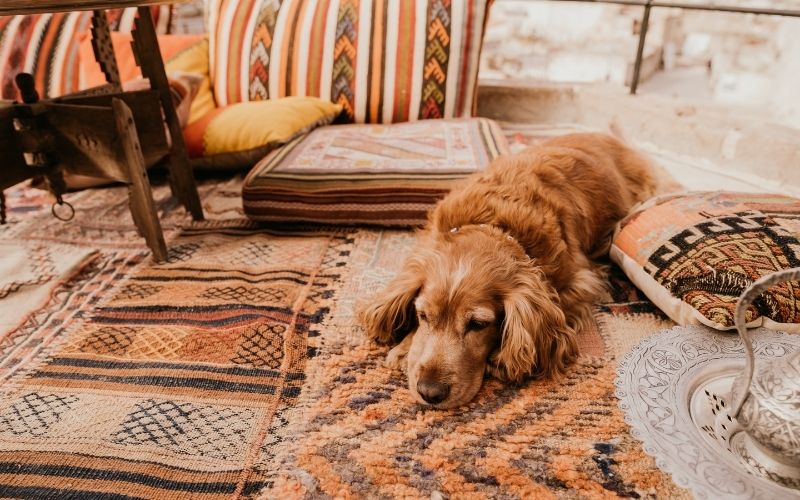
However, keep in mind that this is just a general guideline and some dogs may need to go more frequently, while others may be able to hold it for longer periods of time.
Your spaniel should be able to visit the toilet when they need to and this could be anywhere from a couple of hours to eight hours.
If you’re not sure how often your Cocker spaniel needs to relieve himself, it’s best to err on the side of caution and take him out more often rather than less.
A word on crate training
I do not advocate the use of crates for house training Cocker spaniels ( or any dog ).
A crate should be a place of rest and safety for your spaniel and should not be used as a form of incarceration to prevent him from going to the toilet.
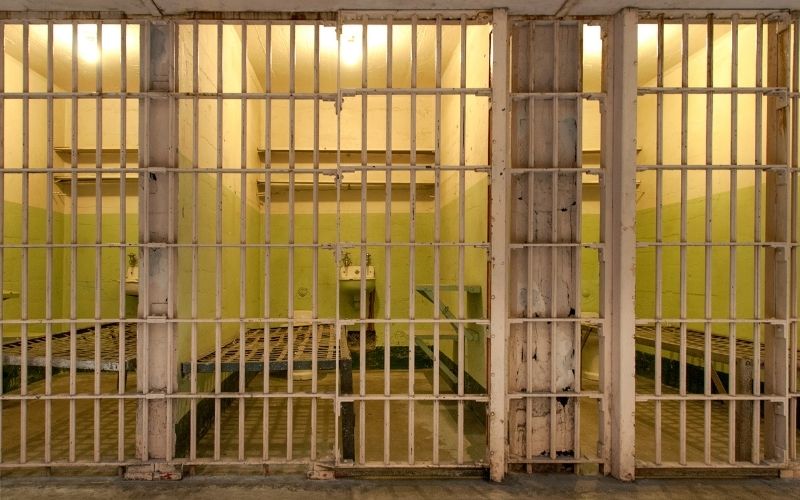
There are many self proclaimed dog experts who ‘recommend’ crates as a means of stopping a dog from peeing – working on the theory that he won’t pee in his bed.
Whereas this might work for a period of time, if your spaniel is bursting then he’ll have no other option.
If you are of the belief that a crate would work then you should consider what happens when he is not in his crate – he won’t have learned anything and will still pee in the house.
Crate ‘training’ does not work, is potentially cruel and is for lazy dog owners who are not prepared to make the effort to help their dog.
Those that recommend crates for house training should be locked in a cage to see how they like it.
Final words
Cocker spaniels are great dogs, but they can be prone to urinating in the house if they get excited or anxious.
There are a number of things you can do to prevent this from happening, including taking your dog out frequently, keeping an eye on him when he’s inside, and training him from a young age.
If you think your Cocker spaniel is urinating in the house because of a medical problem, it’s important to take him to the vet for a check up.

